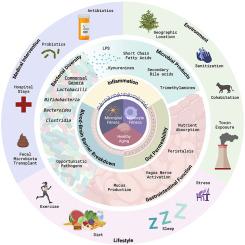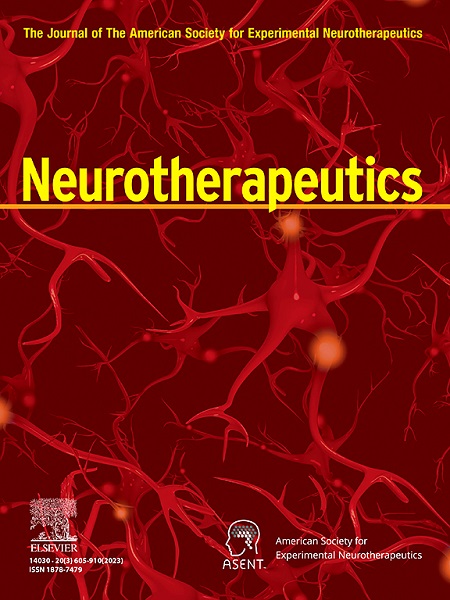Thinking outside the brain: Gut microbiome influence on innate immunity within neurodegenerative disease
IF 5.6
2区 医学
Q1 CLINICAL NEUROLOGY
引用次数: 0
Abstract
The complex network of factors that contribute to neurodegeneration have hampered the discovery of effective preventative measures. While much work has focused on brain-first therapeutics, it is becoming evident that physiological changes outside of the brain are the best target for early interventions. Specifically, myeloid cells, including peripheral macrophages and microglia, are a sensitive population of cells whose activity can directly impact neuronal health. Myeloid cell activity includes cytokine production, migration, debris clearance, and phagocytosis. Environmental measures that can modulate these activities range from toxin exposure to diet. However, one of the most influential mediators of myeloid fitness is the gut microenvironment. Here, we review the current data about the role of myeloid cells in gastrointestinal disorders, Parkinson's disease, dementia, and multiple sclerosis. We then delve into the gut microbiota modulating therapies available and clinical evidence for their use in neurodegeneration. Modulating lifestyle and environmental mediators of inflammation are one of the most promising interventions for neurodegeneration and a systematic and concerted effort to examine these factors in healthy aging is the next frontier.

脑外思考:肠道微生物组对神经退行性疾病先天免疫的影响
导致神经退行性变的各种因素错综复杂,阻碍了有效预防措施的发现。虽然许多工作都集中在大脑优先疗法上,但大脑之外的生理变化显然是早期干预的最佳目标。具体来说,髓系细胞(包括外周巨噬细胞和小胶质细胞)是一群敏感的细胞,它们的活动会直接影响神经元的健康。髓系细胞的活动包括细胞因子的产生、迁移、碎片清除和吞噬。可以调节这些活动的环境因素包括毒素暴露和饮食。然而,肠道微环境是影响髓系细胞健康的最重要因素之一。在此,我们回顾了目前有关髓系细胞在胃肠道疾病、帕金森病、痴呆症和多发性硬化症中的作用的数据。然后,我们将深入探讨现有的肠道微生物群调节疗法及其用于神经变性的临床证据。调节生活方式和环境中的炎症介质是治疗神经退行性病变的最有前景的干预措施之一,而在健康老龄化过程中对这些因素进行系统而协调的研究则是下一个前沿领域。
本文章由计算机程序翻译,如有差异,请以英文原文为准。
求助全文
约1分钟内获得全文
求助全文
来源期刊

Neurotherapeutics
医学-神经科学
CiteScore
11.00
自引率
3.50%
发文量
154
审稿时长
6-12 weeks
期刊介绍:
Neurotherapeutics® is the journal of the American Society for Experimental Neurotherapeutics (ASENT). Each issue provides critical reviews of an important topic relating to the treatment of neurological disorders written by international authorities.
The Journal also publishes original research articles in translational neuroscience including descriptions of cutting edge therapies that cross disciplinary lines and represent important contributions to neurotherapeutics for medical practitioners and other researchers in the field.
Neurotherapeutics ® delivers a multidisciplinary perspective on the frontiers of translational neuroscience, provides perspectives on current research and practice, and covers social and ethical as well as scientific issues.
 求助内容:
求助内容: 应助结果提醒方式:
应助结果提醒方式:


